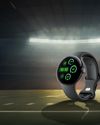
The last major revolution in sound came in the early Thirties when Alan Blumlein pioneered stereophonic sound. The technology became mainstream in the late Fifties and has since become the default way in which music is recorded, produced, and played. Today, we don’t even think about it. Nearly all sound we hear around us is in stereo. While there’s no question that stereo sound is a major improvement over its predecessor mono sound, it’s still a compromise. That’s because we don’t perceive sound from just two sources. Sound, in the real world, comes from all around us. And for the past few decades, companies like Dolby, Sony, and DTS have been trying to fix that with surround sound technologies, and with varying degrees of success.
ENTER SPATIAL AUDIO
Change, however, could be on the way because Apple announced in June 2021 that it would be supporting spatial audio on its Apple Music streaming service. Before we go on any further, it’s necessary to clear up some confusion surrounding the nomenclature of it all. The underlying technology enabling spatial audio on Apple Music and through Apple devices like the AirPods Pro and AirPods Max is Dolby Atmos. Now, this technology has been with us for a while but it was almost exclusively used in the movie industry – in movies, cinemas, and home theatres. It differs from older surround technologies in that it adds a height element to the mix, thereby allowing sounds to be presented as three-dimensional objects in space. It sounds more immersive, but it was also expensive to implement. Cinemas needed to be fitted with extra speakers (mostly in the ceiling) and home theatres required expensive multi-speaker setups.
This story is from the {{IssueName}} edition of {{MagazineName}}.
Start your 7-day Magzter GOLD free trial to access thousands of curated premium stories, and 9,000+ magazines and newspapers.
Already a subscriber ? Sign In
This story is from the {{IssueName}} edition of {{MagazineName}}.
Start your 7-day Magzter GOLD free trial to access thousands of curated premium stories, and 9,000+ magazines and newspapers.
Already a subscriber? Sign In

ON THE CUTTING EDGE
The Keychron Q1 HE might look like just another addition to the already packed mechanical keyboard market, but there's something a bit special about this one.

About Singaporeans, iPhones, and the Find X8 Pro's return:
OPPO's tell-all interview with its top executives

Best eSIM Roaming
Data Plans For Trips To China, Japan, South Korea, And Taiwan

Everything You Need To Know About OPPO ColorOS 15
REINVENTING COLOROS 15 For many Android-based phone brands, a reskinned operating system is just a reinterpretation of their design choices and brand image. Sometimes, proprietary features make things more convenient than stock Android, but the rest is a repackaging.

5 Steps To Ensure Your Computer Security
FOR MANY YEARS, HAVING ANTIVIRUS INSTALLED on your PC was all that was needed to keep you safe from cyberattackers. And where Macs used to be the \"safe\" alternative is unfortunately no longer true.

MEANINGFUL REFINEMENT
Now I’ve been reviewing smartwatches and activity trackers for a long time, and the Watch GT 5 Pro is the first watch to actually get attention from my wife, complimenting its looks in the way of a classy wristwatch.

BIGGER DISPLAY, BUT WHAT ELSE?
My initial impression of the Pixel Watch 2 was that it felt like a round Fitbit Sense 2 running Wear OS. The tradeoff was losing iOS compatibility while still facing Fitbit’s paywall for advanced app features.

AMBITIOUS.FEATURE-RICH.OVERLOADED
The Amazfit Balance is designed to compete with Fitbit, Garmin, and Huawei devices, while maintaining independence by being compatible with both iOS and Android. Priced at $352, and often discounted below $300, it's a value-packed option.

It's Upgrade Time
As the tenth anniversary of the Apple Watch approached, rumours about a revolutionary device with a dramatic design change swirled-the Apple Watch X. But as it turns out, we got the Apple Watch Series 10 instead.

Ryzen AI Enters The Fray
This review covers the flagship processor in the lineup, the Ryzen AI 9 HX 370, which features a powerful 12-core, 24-thread configuration, 36MB of cache, and Radeon 890M graphics.